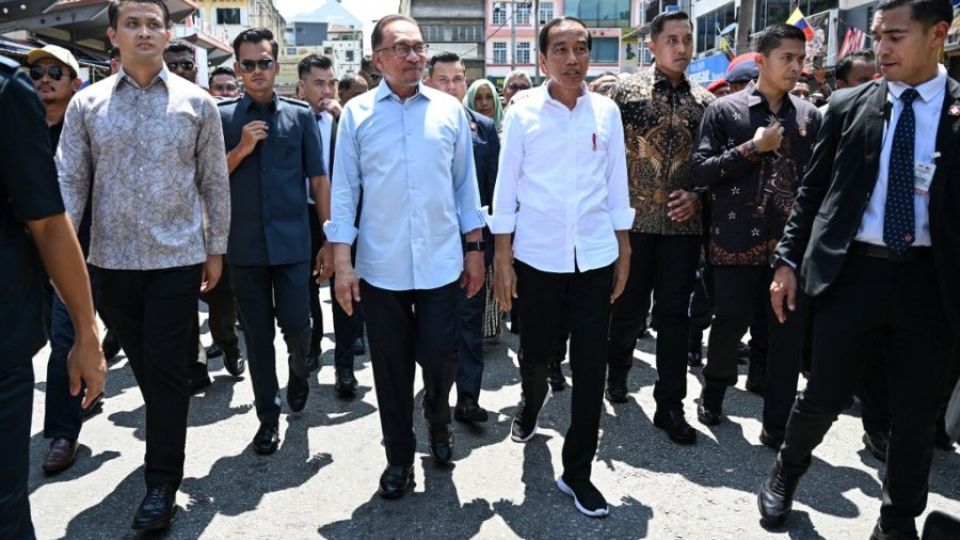June 14, 2023
JAKARTA – Staying true to his business background, President Joko “Jokowi” Widodo has in his foreign policy given primacy to somewhat mundane and technocratic issues.
It is no surprise that two of the most pressing agendas in his foreign policy are the protection of Indonesian citizens abroad and economic diplomacy with the aim of increasing trade and investment flow to Indonesia.
A former mayor of Surakarta, Central Java, who was most at ease touring the city’s traditional market or checking on roads and bridges, as president Jokowi has eschewed pomp and ceremony and has shied away from speechifying and grandstanding.
While his erstwhile political rival and now his Defense Minister, Prabowo Subianto, has developed the habit of making big statements when overseas, including earlier this month in Singapore where he caused a stir by proposing a peace plan in Ukraine, President Jokowi has never once set foot in the United Nations headquarters to address a global audience.
Even last year, when he could have used his presence at the UN to promote a peace initiative in Ukraine in the lead-up to the Group of 20 Summit in Bali, again Jokowi decided to call off his visit to New York.
And when he finally decided to take up the big task of working on a peaceful solution to the Russia-Ukraine conflict, President Jokowi insisted on giving it a pragmatic edge.
Finding ways to mediate the conflict was certainly on the agenda when Jokowi visited Kyiv and Moscow late last year, but there were also concrete deliverables that he attempted to bring home; uninterrupted access to grain and fertilizer that Indonesia relies so much on for its economic and political stability.
It is in this light that we should see President Jokowi’s stopovers last week in Kuala Lumpur and Singapore.
Again, the President will only go to places where he expects to reap tangible gains and in the two countries he expected to get a bucketload of these.
It is also notable that in Singapore and Malaysia Jokowi appeared to be in his comfort zone.
In Singapore, he made jokes about next year’s election, in English, and many in the audience appeared to be genuinely entertained.
The President himself had every reason to be cheerful, especially with the presence of dozens of Singaporean businessmen a week earlier in the planned new capital Nusantara, which he hopes could soon pour in money for the project.
And with Indonesia planning to lift a 20-year-old ban on sea sand exports to Singapore, President Jokowi expected that he could get something concrete in return. The ban on sand exports has long been a bone of contention between Singapore and Indonesia and it is only natural that Singapore will respond in kind.
Singapore is currently planning and designing the third phase of its Tuas Port mega project, with reclamation work expected to be completed in the mid-2030s, so sand from Indonesia will be crucial in realizing the plan.
In Malaysia, President Jokowi was even more at ease.
With the presence of a sizable Indonesian population in the country, Malaysia is certainly the focal point for Jokowi’s citizen-protection policy and he has benefited tremendously from that policy.
In a trip to Chow Kit wet market in Kuala Lumpur last week, Jokowi got a warm welcome from traders and vendors, of Indonesian origin and otherwise, who mobbed him and asked for selfies and group photos.
And then of course there is the unified front he set up with Prime Minister Anwar Ibrahim against the European Union on the issue of palm oil.
A joint statement issued after the Jokowi and Anwar meeting said they had agreed to “cooperate closely to address highly detrimental discriminatory measures against palm oil by the EU.”
Coupled with the rock star treatment he received in KL and Singapore, Jokowi went home a happy man last week


